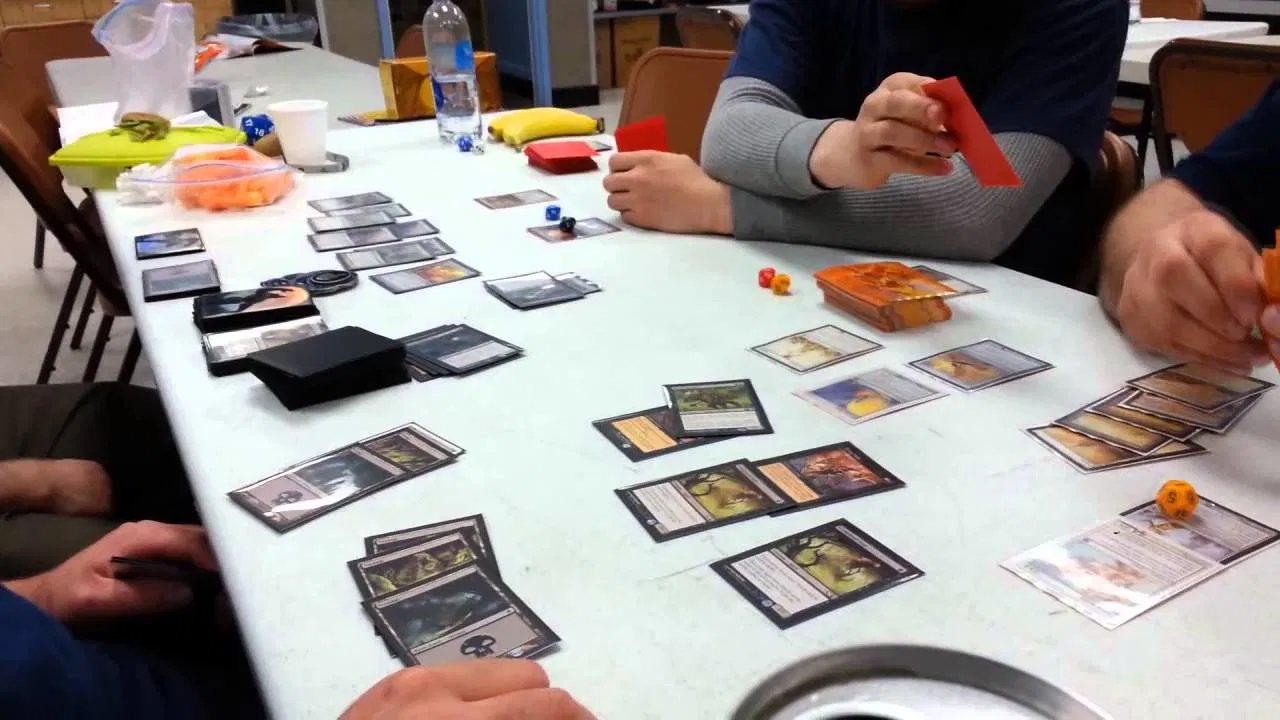What Is FNM In MTG? - Preparing For Your First Friday Night Magic

Friday Night Magic is the cornerstone of "The Gathering" portion of Magic: The Gathering. It's a place for all players, regardless of experience or skill level to come together and play the game in a competitive environment. And if you've never been before it can be quite daunting. If you're one such player, worry not. Today I will cover everything you need to know about FNM. Let's start with what it is.
Friday Night Magic often shortened to FNM is a tournament held at game shops and card stores on Friday nights. They are open to any player and are designed to be a user-friendly introduction to competitive events for beginners. While they are considered casual and most are quite laid back they are officially sanctioned events.
With the official definition out of the way let's move on to some more specific things. How does FNM work? What do you need to bring? How should you prepare for your first event? I'll cover all of this below as well as give you some tips and tricks that I wish I would have known going into my first time at Friday Night Magic.
How Does FNM Work?
Here I'll go over some of the logistical things that happen when you attend one of these events. I'll start with the very basics and move on to some of the less intuitive things, just so that there will be no surprises when you show up ready to play.
Signing Up
When you first arrive, simply tell an employee that you're there for FNM and what format you'll be playing. They'll have you write your name on a piece of paper along with everyone else playing in that format, and collect your entry fee. Sometimes if you're early they'll wait until more players have arrived before taking money. If this is the case, just keep an ear out for them to call for payments.
Getting Started
Once the time arrives for the games to start, the shop will say something to the effect of "Players your round one pairing are up." and players will make their way up front to view them. You'll find your name across from someone else's name - This is the person you'll play in round one. Sometimes it will also have a seat or table number as well. If you're new, you probably won't know people by name but finding your opponent is usually pretty easy. If there was no table number on the sheet, you can simply play wherever is open.
How Do Rounds Work?
Most FNM are three rounds and are "Swiss Tournament" style. This means that each player won't necessarily play all other players in the tournament. Instead, in the first round pairs are made at random. After that players are paired with those who have a similar record. So, for example, if you win in round one, you'll face a player who also won come next round. However, if you lose in round one, you'll be matched with someone who also lost in the next round. Furthermore, this means that losing does not mean you're out of the tournament.
In each round, you play the best two-out-of-three games. So, you'll play between two and three games in each round. When either you or your opponent has won two games, your match for that round is over, with the person winning two games being the winner. At the end of your game for the round one player will report the results.
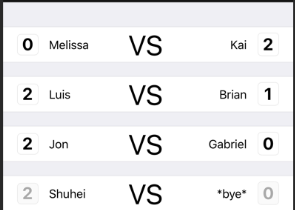
For example, player one won 2/0, or player two won 2/1. Sometimes this will be written on a piece of paper that is provided to you which both players sign and sometimes simply telling the employee where you signed up the results will suffice.
If there is an odd number of players, one player each round will get a "bye." When someone gets a bye they don't play for that round and are given an automatic win. Usually, a different player will receive the bye each round. Each round is 50 minutes long. The time limit is set so that each round is finished in a timely fashion. At the end of the 50 minutes, the game goes "to turns."
This means that the player whose turn it is when time expires finishes their turn and then there will be a total of five more turns to finish the game. If neither player wins in these final five turns, the game is considered a draw. Once your game for the round is finished you hang out while other players finish the round and then the pairings for the next round are announced just like they were for round one.
How Do Prizes Work?
This question is hard to give a concrete answer to because things change slightly from store to store. That said, the way the price pools generally work is this - First, you'll pay a fee (usually $5-$7 for constructed and $15 for Draft) to enter the tournament and you'll get a participation Booster pack. To put it simply, after that, the more wins you get the more packs you stand to receive at the end of the night. The more players that participate in the tournament, the bigger the overall prize pool will be.
You May Also Like: Magic: The Gathering Glossary - Terms, Lingo, Slang, And Jargon Explained
Friday Night Magic Etiquette
If you're not used to playing with strangers there are a few small but important things that you need to know. In this section, I'll go over some do's and don't when playing at FNM.
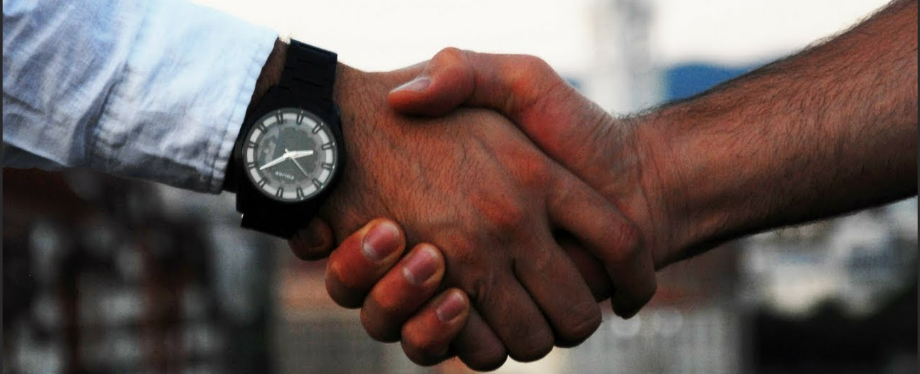
Be Friendly
This one should go without saying but sometimes it can be hard if you're nervous. That said, you're dealing with regular people, and being generally polite goes a long way, so keep that in mind. It's always worth remembering that you all have MTG in common if nothing else. So, be friendly and you'll likely make friends very quickly.
Whenever you start a game with an opponent, general greetings, a handshake, and a "good luck have fun" are a good place to start.
Cut Your opponent's Deck And Let Them Cut Yours
Once the introductions are done, you should shuffle your cards and then present your deck to your opponent to cut it and your opponent should do the same. You should always offer your deck to be cut. Sometimes opponents will simply rest their hand on top of your deck or tap it and this usually means they don't want to cut. That said, be sure to always offer. Furthermore, don't be afraid to ask to cut your opponent's deck - It's a standard procedure and in no way implies you think they're up to something.
Ask Before Touching Your Opponents Cards
Once gameplay has started, always be sure to ask before you touch another player's cards. Needing to handle opposing cards isn't uncommon - sometimes players will need to read one another's cards or may even gain control of opposing cards. Whenever either of these things happens, always be sure to ask first. Furthermore, always treat their cards with respect and be gentle with them.
Tell Opponents Before Going To Combat
If it's your turn and you're ready to attack it's good to be in the habit of announcing you're moving from your main phase to combat. This is so that your opponent has time to declare any effects they may have before you attack. That said, there are benefits for you as well.
For example, let's say your opponent has a Gideon's Lawkeeper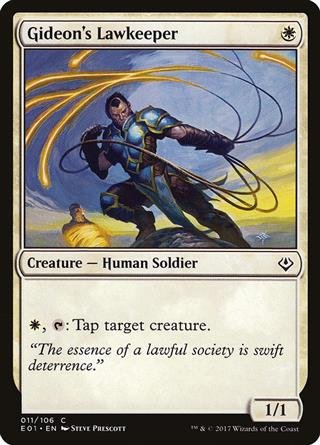 on the battlefield. The phases of a turn say that your opponent would have an opportunity to activate this ability before you attacked with a creature, so you have to give them the chance to do so. A common way to announce this is by asking "Move to combat?" or "Go to attacks?"
on the battlefield. The phases of a turn say that your opponent would have an opportunity to activate this ability before you attacked with a creature, so you have to give them the chance to do so. A common way to announce this is by asking "Move to combat?" or "Go to attacks?"
I say there are benefits for you as well because if you tap your creatures without announcing you're moving to combat and your opponent has something they wanted to do, you have to move back and let them. However, now they'll be doing it with the knowledge of exactly what you plan to attack with.
Calling Judges
If you have any ruling questions, something happens that you don't understand, or your opponent does something you don't understand you can raise your hand and call for a judge. If you need a judge for any reason, don't be afraid to call for one. Magic is a complex game and that's what they are there for.
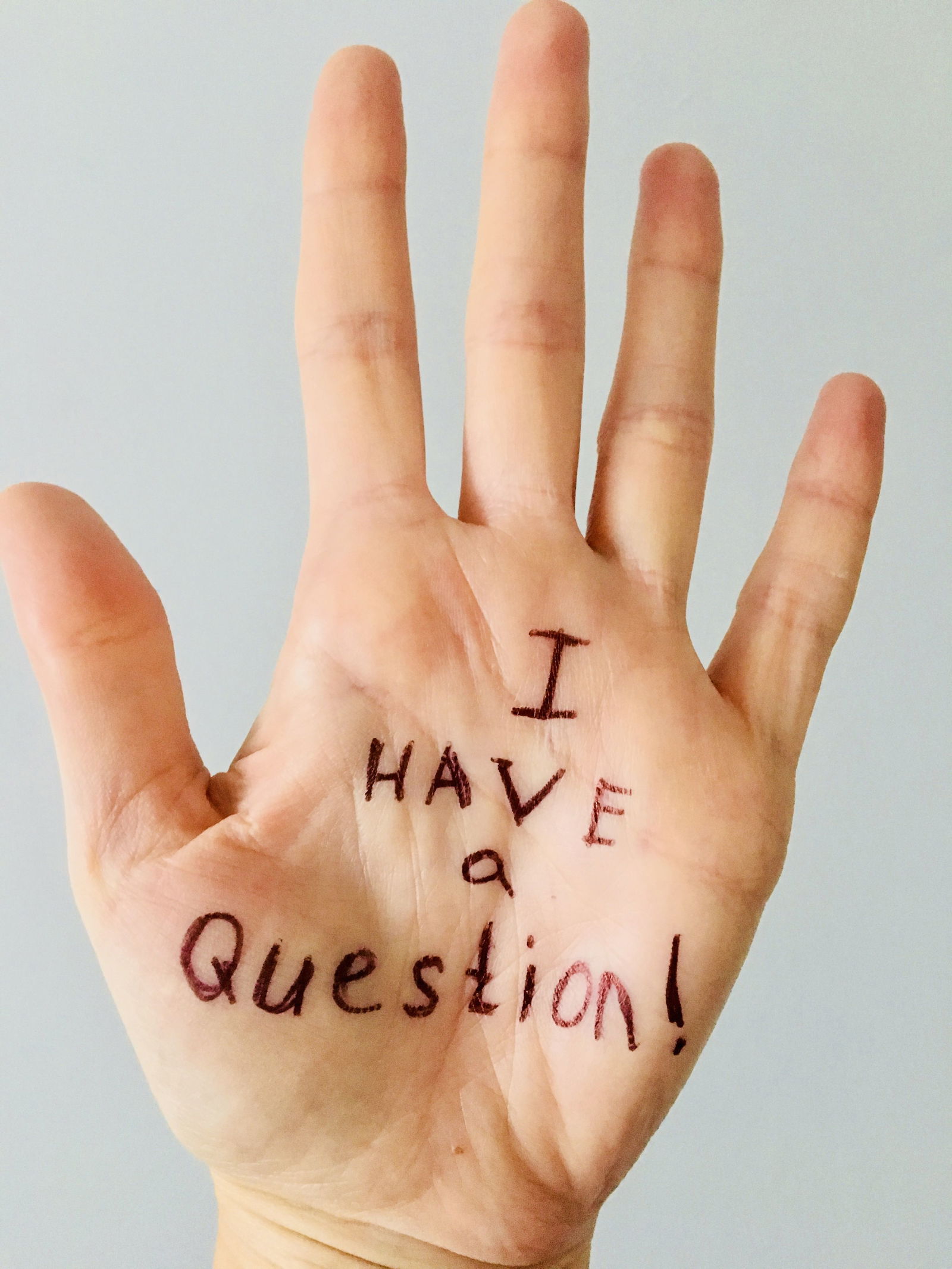
At times, your opponent may explain how something works to you instead of having you call for a judge. This can be ok for some very small things - However, when it comes to the rules, if you're unsure, always call the judge over. First, you're well within your right to do so. Secondly, your opponent isn't always right. So, always call if you need something.
Takebacks
This is a bit of a hard one. Takebacks refer to when a player does something and then asks to take it back. Another common way this comes up is when someone misses a trigger for something and asks to move back and get it. For example, a player has a Dark Confidant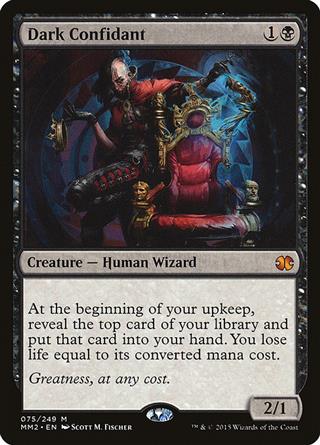 in play and doesn't reveal a card on their upkeep.
in play and doesn't reveal a card on their upkeep.
Let me be clear here - You're not required to let anyone take back any play or give them any triggers that may have missed. That said, you can allow them to if you want to. So, should you? I'm of the opinion that it depends. It's very common for a player to lay down the wrong land, notice it immediately, and ask to pick it up and play a different one. Personally, I usually let them do it but just one time.
On bigger things than that, I usually don't but there are exceptions. On the same hand, I don't ask to take back my mistakes either. Overall, use your own judgment but remember that you don't have to let anyone take anything back. Furthermore, having to live with the misplays that we make makes us better players.
So, if you're allowed to take back a mistake or allow someone else to take one back don't make a habit of it or allow yourself to be taken advantage of.
Say Good Game
At the end of each round (or even each game) it's good sportsmanship to say good game or simply GG, to your opponent. Again, if you're a handshake kinda person, shaking your opponent's hand at the end of a round is good too.
What Do You Need To Bring To Friday Night Magic?
Hypothetically you could show up with nothing but your cards and play. Most experienced players will have extras of things you may need and allow you to borrow things like dice if you don't have them. However, if possible there are a few things you should have.
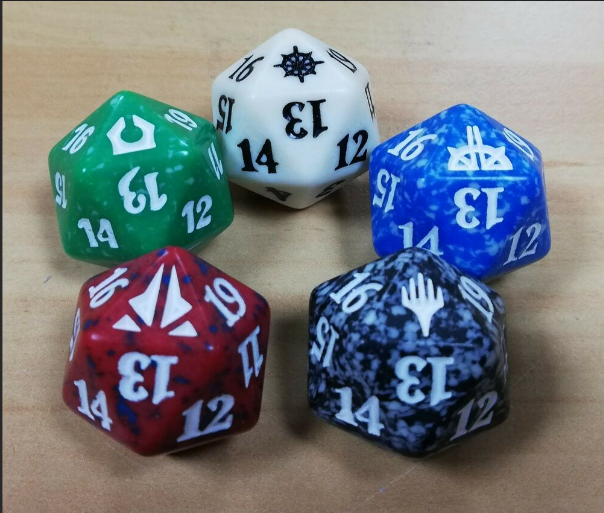
A Way To Keep Track Of Life Totals
This could be anything from an app on your phone, a spindown life counter, or a notepad and pen. Whatever you choose is fine as long as you can keep up with how much life you and your opponents have. There are pros and cons to each option I mentioned but pen and paper are the safest considering it won't change if it's bumped by someone and there will be a record of life total changes.
Card Sleeves
While card sleeves are not mandatory, I highly recommend you have your card sleeves for a few reasons. First off, it can keep you out of trouble. If your cards have any dings, nicks, bends, or other damage, it could effectively "mark" that card and be considered cheating. Having sleeves in good condition eliminates this problem.
Aside from that, having sleeves protects your cards and makes them much easier to shuffle. Remember that your opponents will be handling your cards and sleeves make everyone more comfortable.
Dice And Counters
Dice and/or counters can come in handy. Especially if you play a deck where you'll be adding things like +1/+1 on your creatures or you have Planeswalkers. However, as long as you can clearly show how many counters are on your things, you'll be fine. So, anything from pennies to beads can be used. If your deck doesn't use any type of counters, you may not need them at all.
Tokens
Again, if you play a deck that creates any type of tokens, you'll want some way to clearly represent them. This can, of course, be done with the actual token. If you don't have the actual token, a different token (for example you need a 1/1 Goblin token and have a 2/2 Knight token) a homemade one, or simply a facedown card that isn't in use are fine to use. As long as what the tokens are supposed to be is clear to everyone, you're good.
A Deck Box
You don't have to have a deck box for FNM. However, they come in handy for keeping your things together and organized. They are awesome for holding your sideboard cards and making sure you know which cards are which. Furthermore, if you do have tokens or counters having a place to keep them is quite convenient. Overall, I recommend you have a deck box if possible.
Tips And Tricks
Here are some tips and tricks to help make your experience go as smoothly as possible and help you play your best.
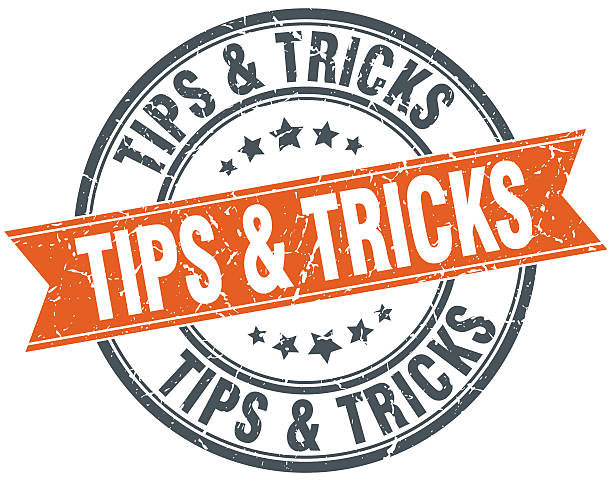
Always Keep Your Cards With You
Keep your deck (and all other possessions) with you at all times. For example, if you go to the bathroom, to go buy a drink, or to go report results for the round take your things with you. Unfortunately, theft isn't uncommon. I've experienced it myself and it's never fun. It's always better to be safe than sorry.
Play The Deck You're Comfortable With
Leading up to your first event, you may be unsure which deck to play. My advice is to take the deck that you're most experienced with and run with it. It can be tempting to try and take whatever deck you feel is "the best" even if you've never played it. However, you'll play much better with a deck you know than the "best deck in the meta" that you've never played with.
Take A Sideboard With You And Use It
You're allowed to have 15 cards outside your main deck that you can access in games two and three of each round. You can switch out cards from your main deck and sideboard to make the matchup more favorable. Building a great sideboard is an art unto itself but in short, you'll want versatile cards that can deal with specific things an opponent may be doing but that you don't want in every matchup.
An example is cards like Tormod's Crypt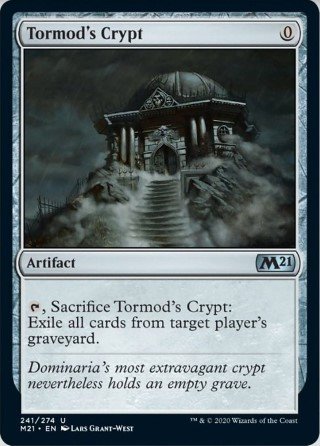 and Rest in Peace
and Rest in Peace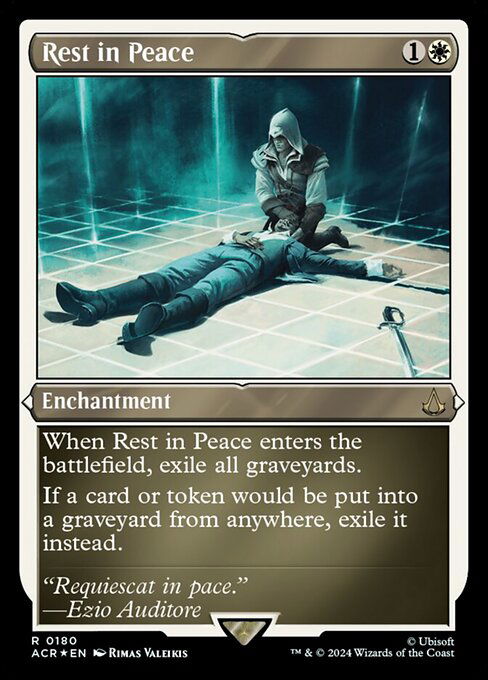 which can deal with opposing graveyards. You wouldn't want cards like this in your starting deck because they would be useless in a lot of matchups. However, when you come up against a deck that relies on its graveyard, having access to them can win you the game.
which can deal with opposing graveyards. You wouldn't want cards like this in your starting deck because they would be useless in a lot of matchups. However, when you come up against a deck that relies on its graveyard, having access to them can win you the game.
Be Sure To Un-Sideboard At The End Of Each Round
You have to play with your starting 60 cards for the first game of each round, so this is important. When you sideboard, it can be hard to keep up with how many cards you've added and/or removed. For example, say you've added three cards from the sideboard to your deck - You'll usually be taking three cards out as well. Whenever you've finished, you can count your sideboard cards to make sure you took out as many as you added. If you count 15, you know you're good.
Use Counters To Make Sure You Don't Miss Upkeep Triggers
If you have cards in your deck that trigger on your upkeep putting some sort of counter on the top of your deck will ensure you can't draw a card (your upkeep comes before your draw step) without remembering your upkeep trigger.
Read Your Opponent's Cards If You Don't Know What They Do
If an opponent plays a card that you're not familiar with or you're not quite clear on what it does don't hesitate to read it - Just be sure to ask for permission before you grab it.
Take Notes Of Opposing Hand Contents If You See Them
Let me be clear here - This is referring to using cards like Thoughtseize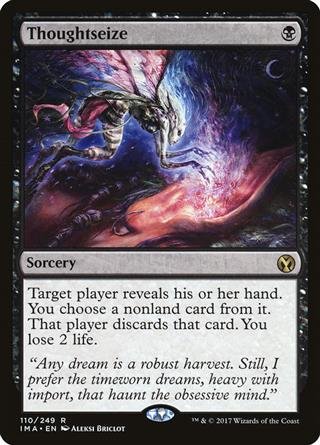 , Duress
, Duress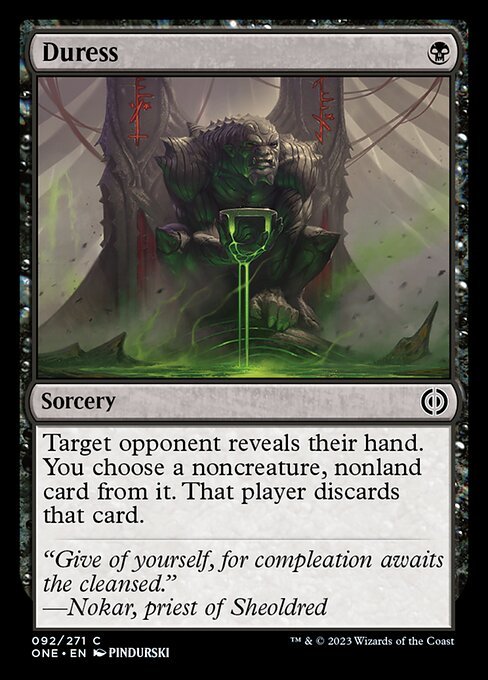 , or Inquisition of Kozilek
, or Inquisition of Kozilek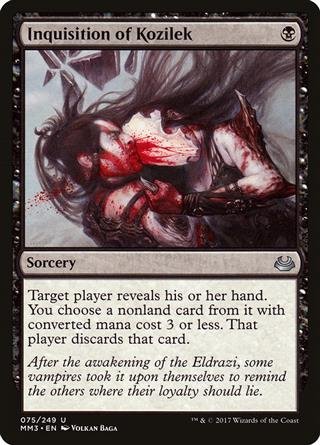 and seeing your opponent's hands, not looking at it without permission. Anytime you use a card that allows you to see the cards in your opponent's hands it's a good idea (and completely legal) to make a note on a piece of paper as to what cards your opponent has.
and seeing your opponent's hands, not looking at it without permission. Anytime you use a card that allows you to see the cards in your opponent's hands it's a good idea (and completely legal) to make a note on a piece of paper as to what cards your opponent has.
Don't be afraid to Lose Games
Losing is part of the game and it happens to everyone. So, don't dread it, and don't be afraid of it. Furthermore, when you lose don't get discouraged or bummed out. It doesn't mean you're a bad player or that your deck is bad - All players and all decks lose. When you do lose take it as a lesson and use it to get better. Paying attention to how and why you lose is the best way to get better.
That said, noting how you lose, and when you misplay and keeping it in mind is very important. For example, if you're playing an aggro deck and keep losing to bored wipes don't give the archetype up for lost. Instead, keep those board wipes in mind and play accordingly. Your losses will make you a better player.
Be Mentally And Physically Prepared
Magic is a complex game and requires quite a bit of concentration to play at your best. You'll be able to be at the peak of your potential if you're mind and body is also at their best. So, be well-rested for your first FNM. Make sure you eat something prior to showing up and make sure you're well hydrated. Basically, take care of yourself. I find it's also helpful to get up and move around between rounds.
If you're someone who indulges in caffeine, have small sips of your beverages of choice leading up to the start of the event. As corny as it sounds, do whatever else puts you in a good mood or "in the zone." Have a favorite song that gets you going? Play it. Whatever it is, that works for you, do it.
Lastly, be confident. Not cocky or pompous, but go in believing in yourself and imagine that you'll do well and you will.
Play Hard And Have Fun
When you're nervous both of these get harder to do but both are important to remember. You can 100% play and have fun even if you don't win. However, winning is fun too, and will give you a sense of confidence. That said, playing hard means that you'll always have fun win or loss. So, be sure to try your best and be happy with the outcome regardless of what happens.
How To Find Friday Night Magic Events Near You?

If you have a local game store that you go to, that would be a great place to start. Simply ask someone who works there if they do FNM and what formats they do. If you don't already frequent a store the Wizards Store And Event Locator can find stores near you and provide you with a list of events that they host.
Conclusion
Friday Night Magic is a very important part of Magic: The Gathering and it is an absolute blast to play. For me personally, it's when the game changed from something I liked a lot to something I loved. If you play Magic at all, I cannot recommend FNM enough. As fun as they are, the first one can be quite intimidating. If you're on the fence about going or are trying to prepare for your first trip you absolutely should go, and I hope you found today's article helpful.

